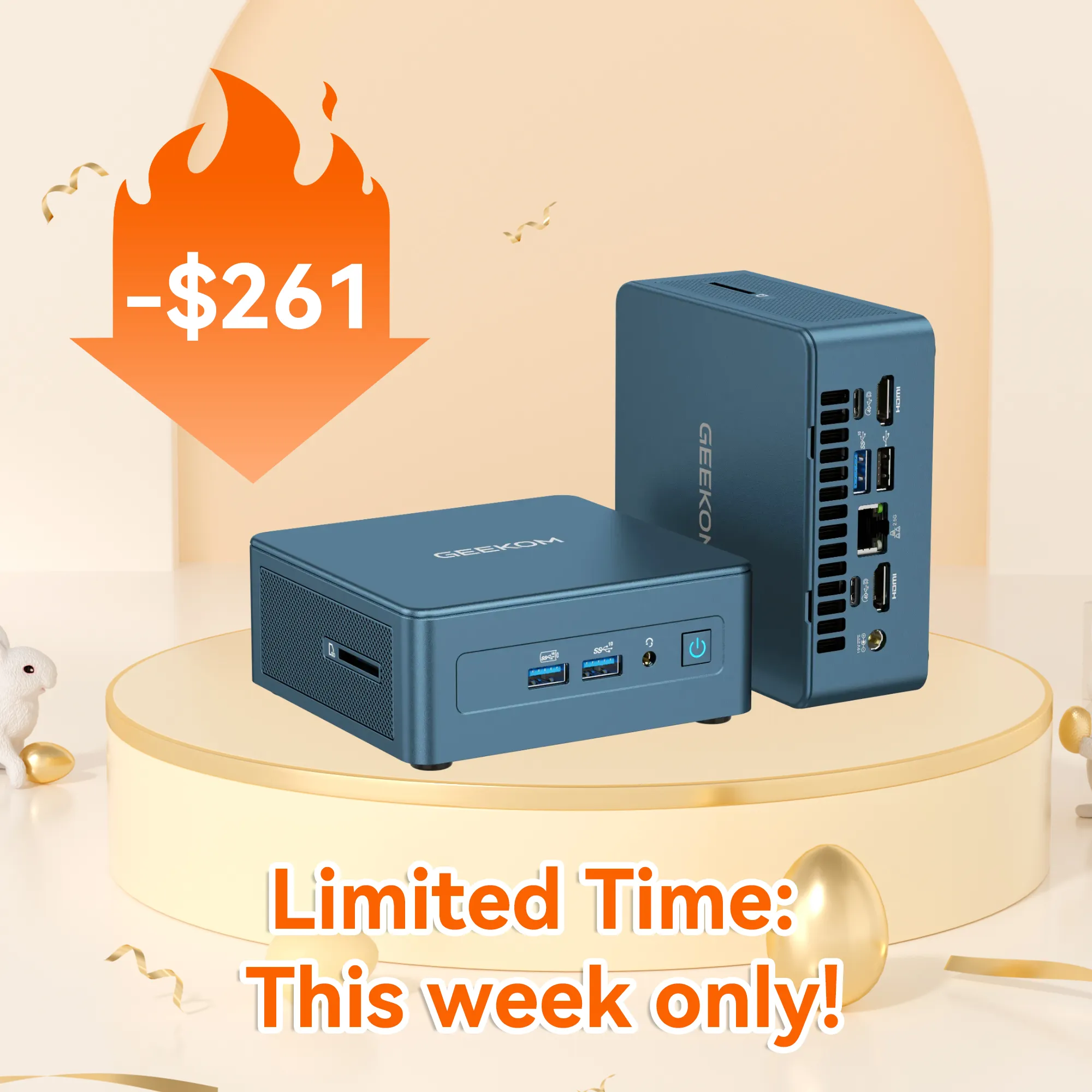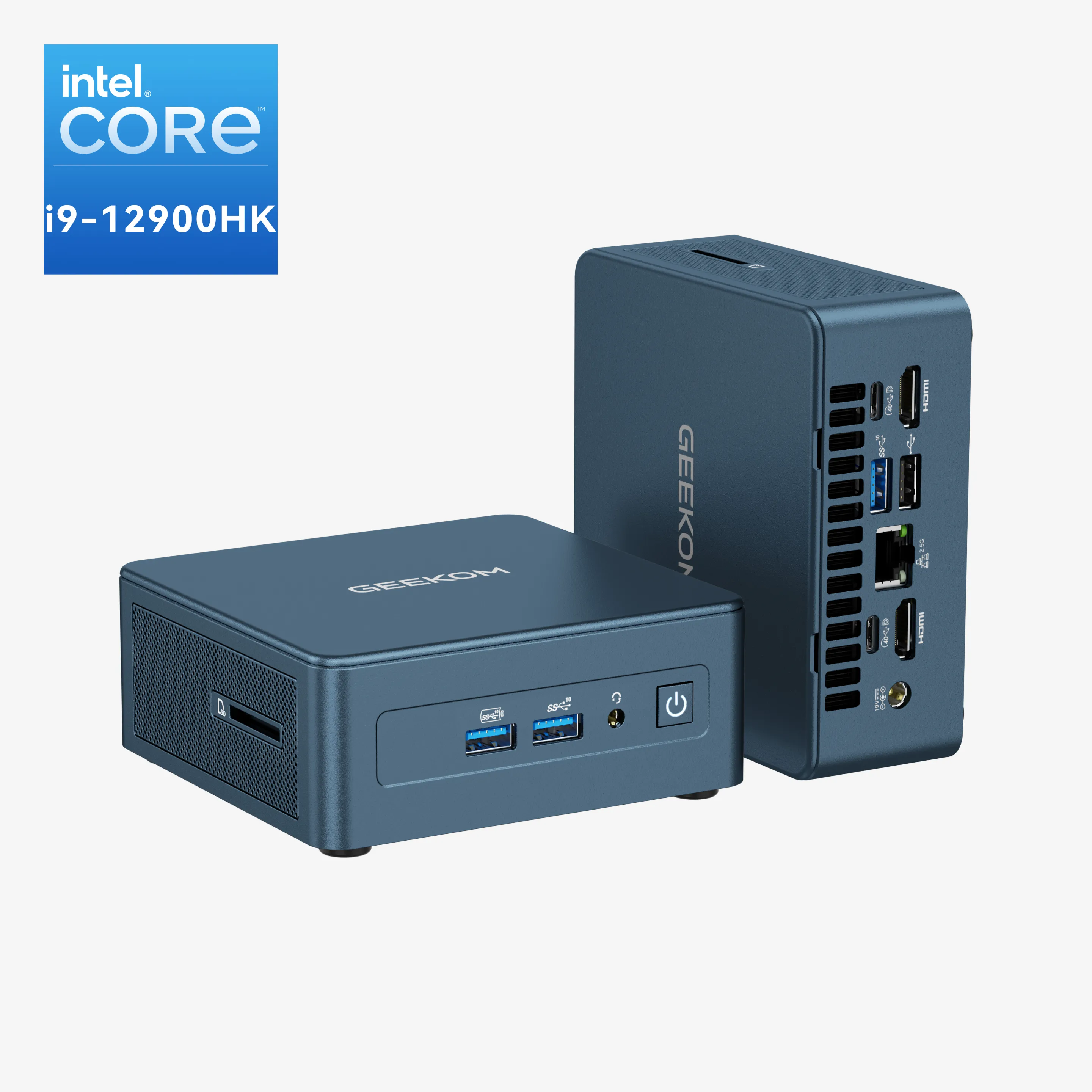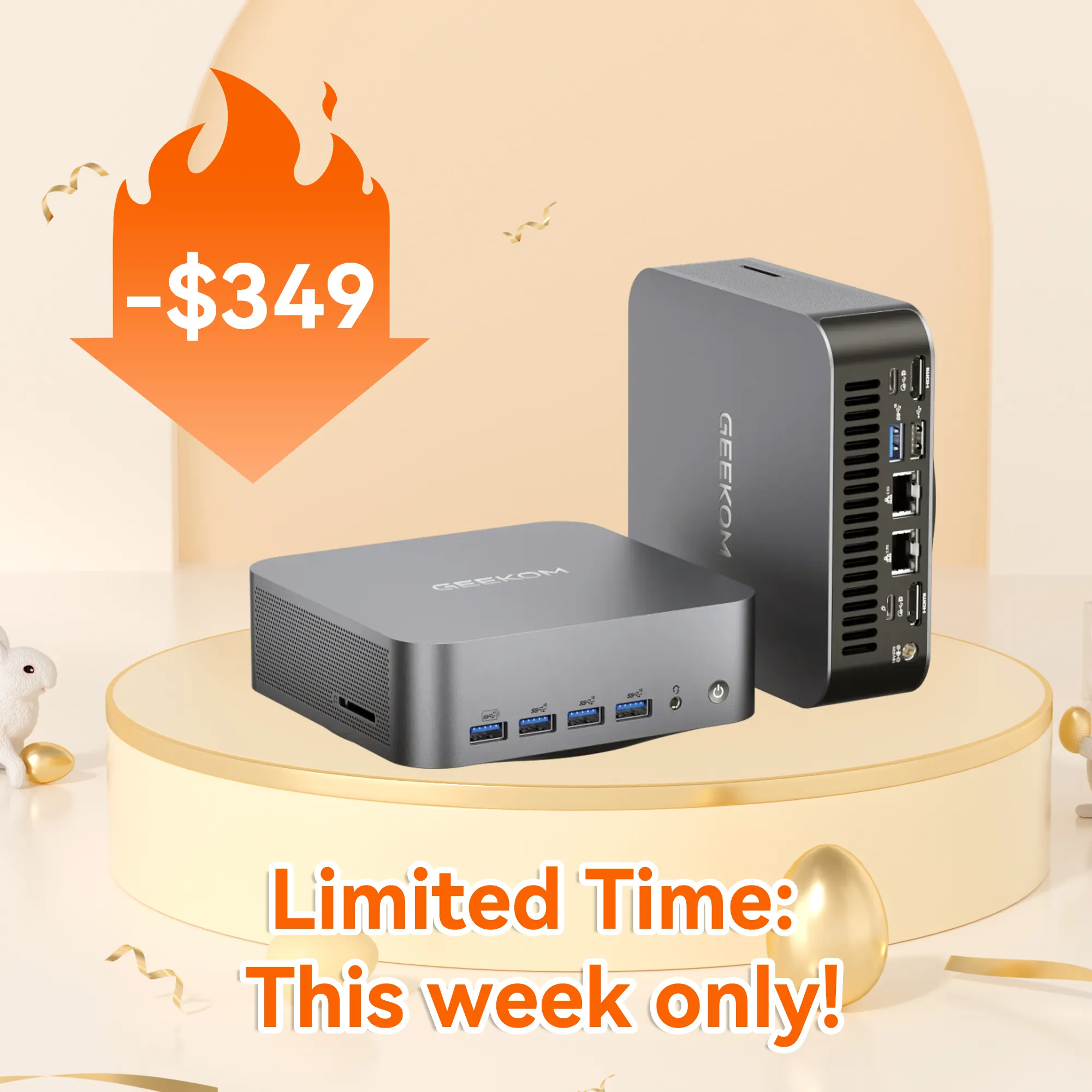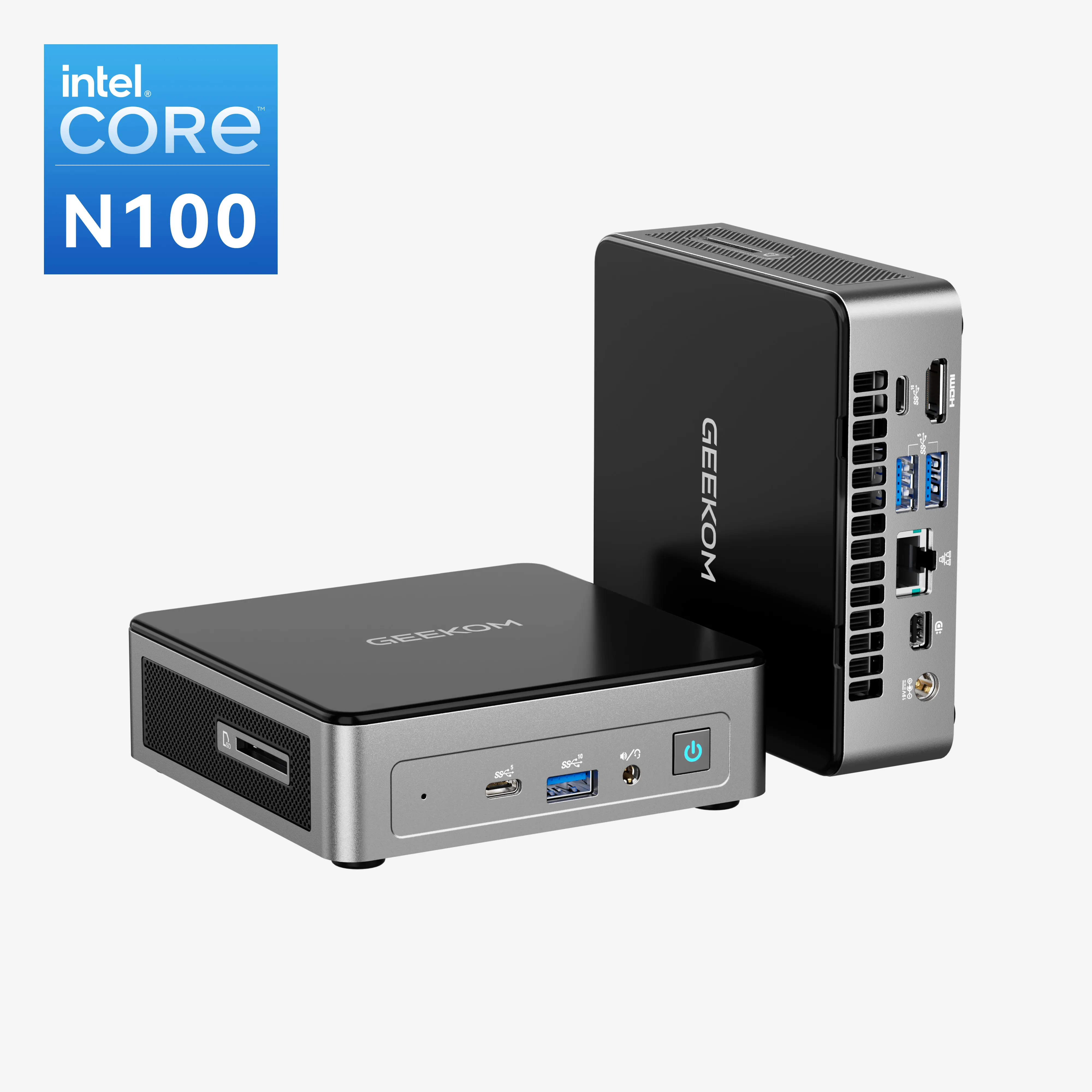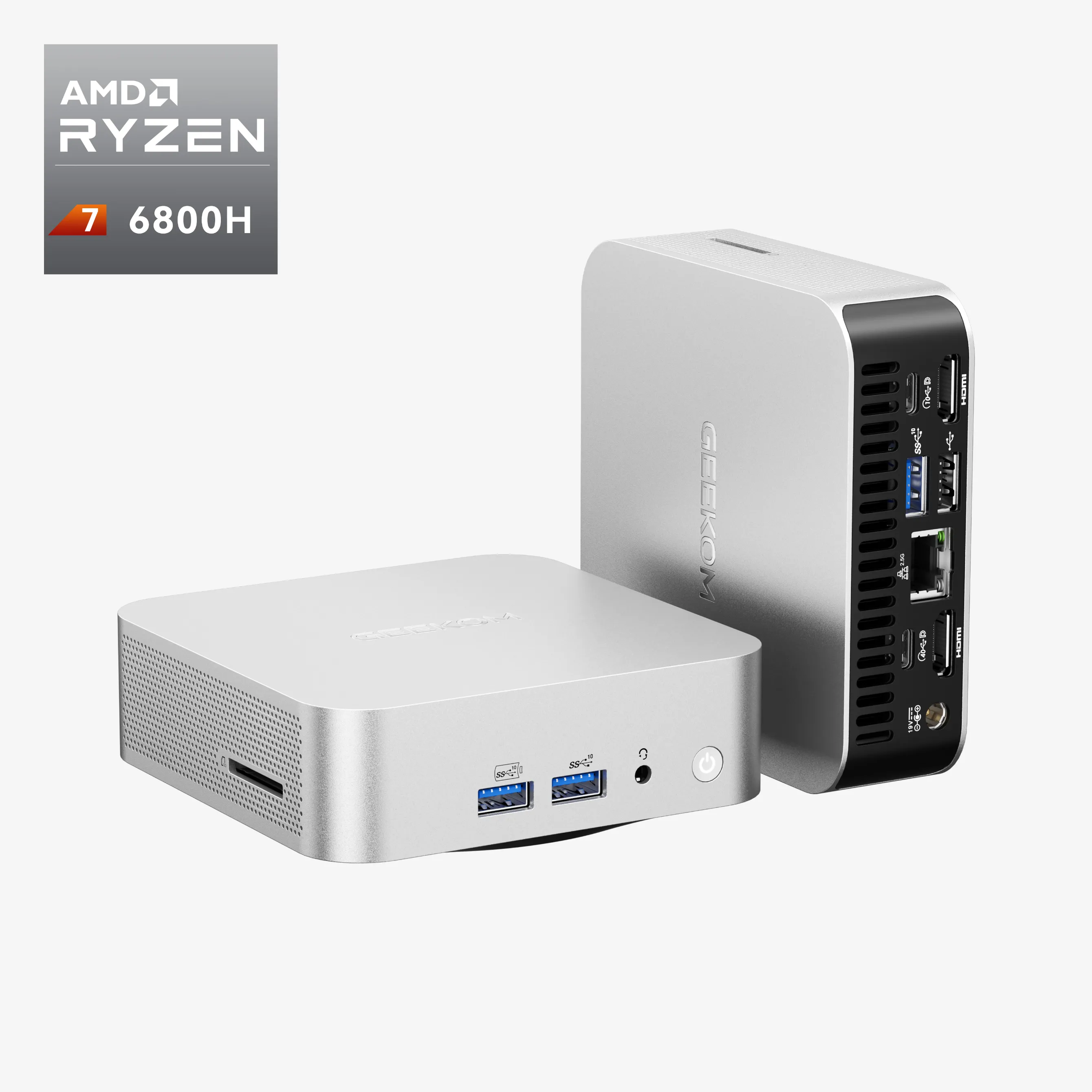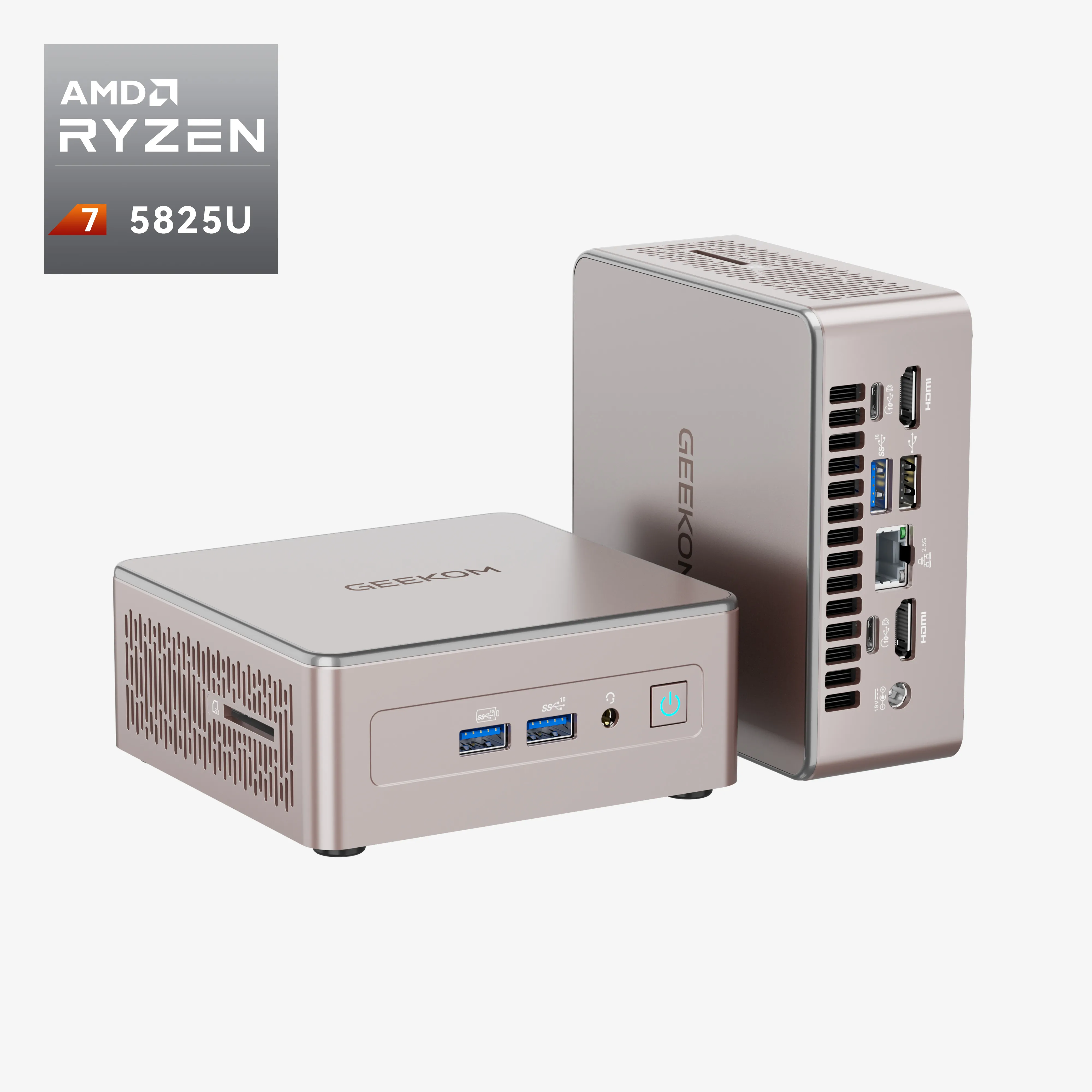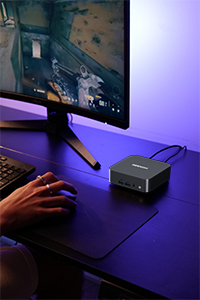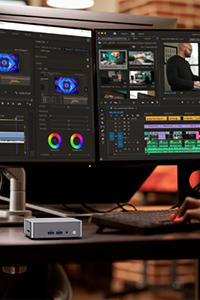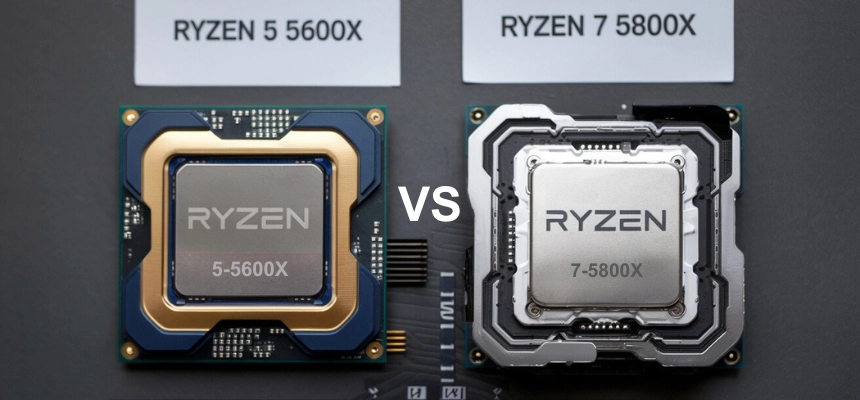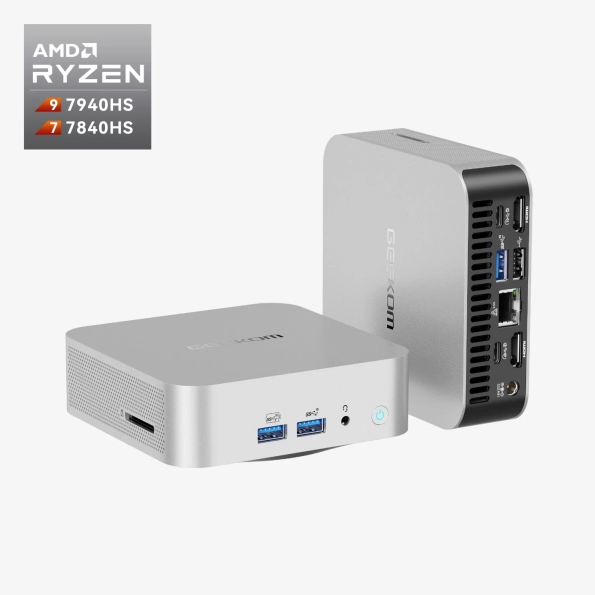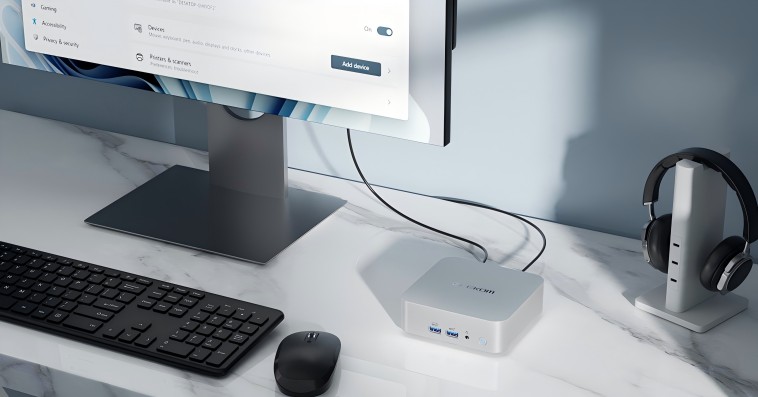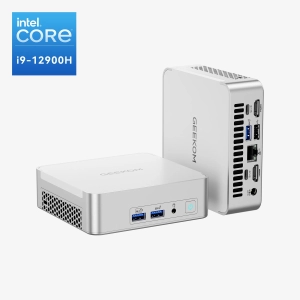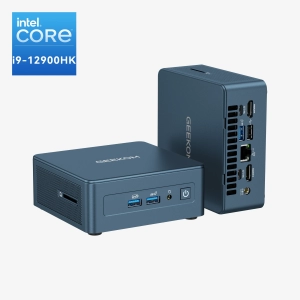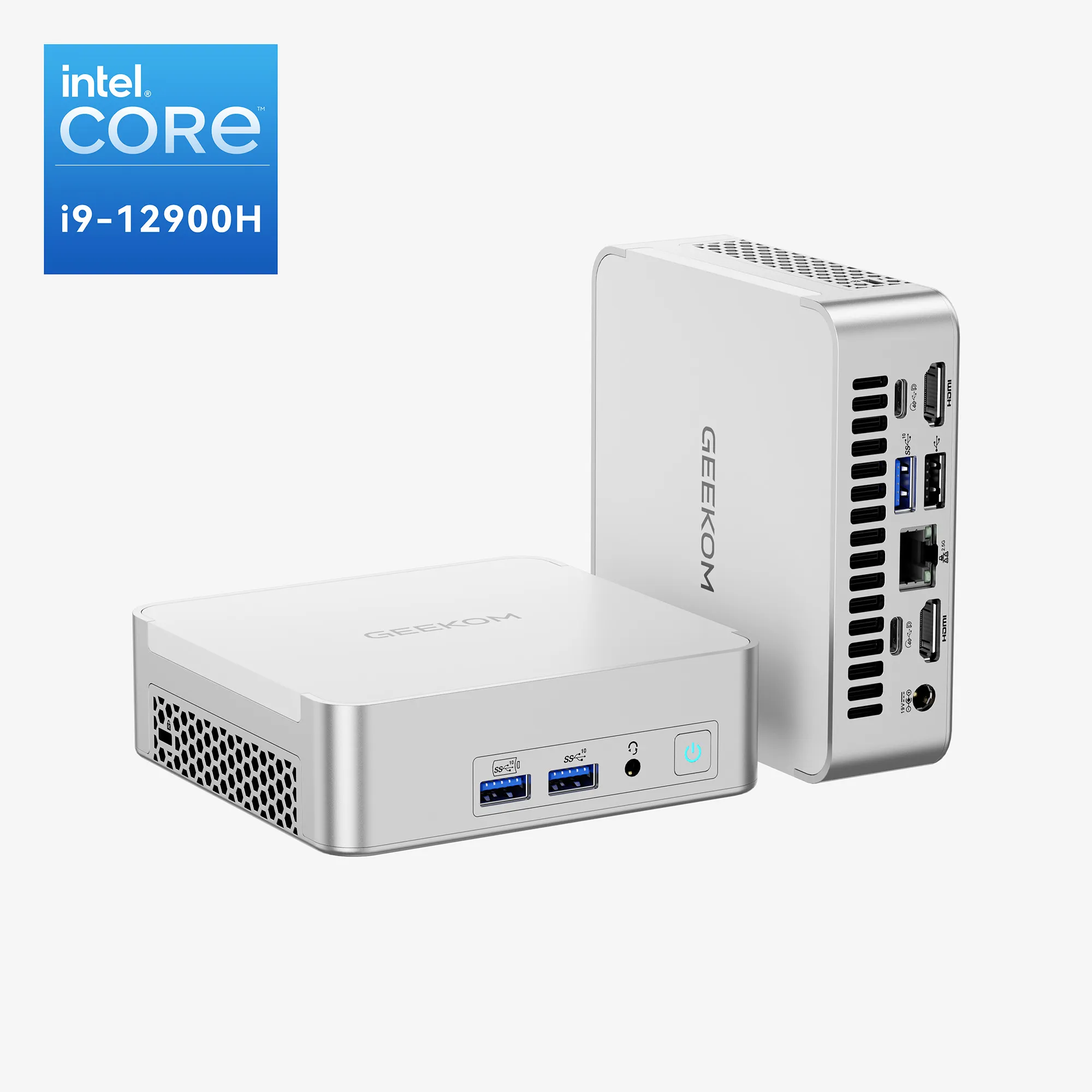Introduction
In the mid-range market, PC builders and gamers alike have taken a fancy to AMD Ryzen 7 5800X and Ryzen 5 5600X to keep the users happy and satisfied. They are built upon the Zen 3 architecture, famous for operational efficiency, boost frequency, and demonstrable performance uplift against older generations. The eight-core Ryzen 7 5800X is made for the power user and has heavy multitasking loads, extended gaming sessions, and content creation duties.
On the other hand, the more basic six-core Ryzen 5 5600X fits the slot for users working on a tighter budget; however, it delivers performance reasonable enough for most gamers and general-purpose users who don’t need to spread across those extra cores. Understanding the benchmark scores, thermal efficiency, and the pricing scales between these two processors will allow you to decide which one best serves your needs.
5600X vs 5800X: Architecture and Technology
The AMD Ryzen 7 5800X and Ryzen 5 5600X are both built upon the Zen 3 architecture from AMD, which was a tremendous progression in the performance and efficiency of CPUs when it came out. The architecture of Zen 3 focuses on instructions per clock (IPC) improvement and overall core efficiency; thus, these processors are, in general, highly competitive in gaming and productivity workloads.
The Ryzen 7 5800X comes with a whopping 8 cores and 16 threads, which naturally makes it an excellent processor for multi-threaded performance tasks such as content creation, video editing, and heavy multitasking. The additional cores make a huge difference in multi-threading workloads since they give more breathing room for such intensive jobs. Therefore, it provides a very solid option for users looking for additional performance to go beyond gaming.
The Ryzen 5 5600X is instead a 6-core and 12-thread processor that is, in general, sufficient for gaming and everyday productivity. It may not be as intimidating as the 5800X due to fewer cores, yet it features the same cutting-edge Zen 3 architecture, meaning that it still boasts top-notch single-core performance, which is very important when it comes to gaming. The Ryzen 5 5600X is more affordable than its countertype: indeed, one of its striking highlights revolves around its price-performance ratio frequently deemed terrific, mostly concerned with gamers that do not necessarily need the extra cores embedded in the Ryzen 7 5800X.
Both support PCIe 4.0 for higher-speed storage and GPU performance, and they also support DDR4 memory up to 3200MHz, ensuring adequate performance for modern applications.
Ryzen 7 5800X and Ryzen 5 5600X: Specs
| Specification | Ryzen 7 5800X | Ryzen 5 5600X |
|---|---|---|
| Architecture | Zen 3 | Zen 3 |
| Cores / Threads | 8 cores / 16 threads | 6 cores / 12 threads |
| Base Clock Speed | 3.8 GHz | 3.7 GHz |
| Boost Clock Speed | Up to 4.7 GHz | Up to 4.6 GHz |
| TDP (Thermal Design Power) | 105W | 65W |
| Cache (L2 + L3) | 36MB | 35MB |
| PCIe Version | PCIe 4.0 | PCIe 4.0 |
| Memory Support | DDR4-3200 | DDR4-3200 |
| Integrated Graphics | None | None |
| Recommended Cooling Solution | High-performance air or liquid cooling | Basic air cooling |
| Price Range | Higher, premium segment | Lower, budget-friendly |
Core and Thread Count
The primary difference between these two processors lies in the number of cores and threads, and this largely contributes to their performance in multi-threaded and heavily parallelized tasks.
The Ryzen 7 5800X packs in 8 cores and 16 threads, making a compelling case for users needing to conduct multiple tasks simultaneously or utilize software that takes full advantage of multi-core performance. Having these additional cores allows the Ryzen 7 5800X to tackle general-use workloads such as heavy-duty 3D rendering and video editing within production, as well as software development involving virtual machines. It is within this realm of professionals and enthusiasts that multi-tasking does not come by any means easy since they also often find themselves running multiple applications or suiting up to more resource-intensive tasks.
Conversely, with its 6 cores and 12 threads, the Ryzen 5 5600X is more than enough to support gaming, light content creation, and general multitasking. As most games and many general applications hardly utilize over 6 cores, the Ryzen 5 5600X thus becomes an option ideal for gamers who are keen on getting optimum performance while not spending on cores they may not use. Again, since the R6500U delivers outstanding single-core performance, it will always remain an option worthy of consideration among gamers, especially in those not-so-leaky situations where frame rates hinge on single-threaded efficiency.
In broad outlines, the Ryzen 7 5800X is deemed to be better for users needing rivers of cores for demanding multi-threaded applications whereas the Ryzen 5 5600X still punches above its weight when handling any gaming, general multitasking, and the day-to-day work at any given price.
Clock Speeds and Performance
Both Ryzen processors sport some impressive clock speeds: a base speed of 3.8 GHz and a rash of boosts up to 4.7 GHz for the 5800X, with its higher base and boost clocks affording it a fair performance in any multi-core workload while preserving a balanced single-core performance. In effect, that higher resin speed combined with 8 cores makes it absolutely ideal for 3D rendering, video editing, and other content creation applications. The longer-lasting higher frequency produces a beneficial type of choice for the person seeking consistent performance in demanding scenarios.
The Ryzen 5 5600X starting from a base speed of 3.7 GHz, able to be pushed up to 4.6 GHz Tosh 5800X leaves it behind in this comparison. Nevertheless, such lowers will work excellently in single-thread workloads, hence suited for gaming. The fact that most games do not light more than 6 cores, the 5600X clock speed is adequate for pulling high frame rates in modern games. Efficiency-wise, it acts as the standout for users focused on reliable suits in lighter multitasking or that penchant mostly for gaming/generic productivity.
The Ryzen 7 5800X emerges as the winner against the Ryzen 05 5600X in multi-core benchmarks owing to its higher core count, while performance differences between both CPUs under single-thread tasks are not substantial. Both CPUs hold excellent gaming capacity, but the Ryzen 5 5600X may be better since you may not need those additional cores serviced by the 5800X.
Power Consumption and Thermal Management
Power consumption and thermal management are important factors in deciding a CPU, especially if one is creating a system with specific cooling or energy efficiency requirements.
The Ryzen 7 5800X has a TDP (Thermal Design Power) of 105W, and therefore consumes more power and generates more heat than the Ryzen 5 5600X. The TDP is higher due to the presence of 8 cores and 16 threads and somewhat higher base and boost clock speeds. This necessitates greater cooling for the Ryzen 7 5800X, such as high-performance air-cooling or liquid cooling, to stop thermal throttle while under heavy workloads and ensure consistent performance. Those building systems with the Ryzen 7 5800X should honestly think about investing in some good cooling.
On the contrary, the TDP of the Ryzen 5 5600X is just 65 watts, making it easier to cool and more power-efficient. The lower TDP makes it a superior choice for an individual segment of customers who want to build compact systems or those who would like to have energy efficiency on any secondary consideration. It is cool and allows more basic setups under the standard air cooler to run, ensuring lap time productivity with stable performance. This makes the CPU an attractive choice for users who would not like to put any more investment in high-end gear yet want decent gaming or productivity performance.
Memory Support and Compatibility
Both CPUs utilize DDR4 memory, rated up to 3200MHz, with the option of overclocking for increased frequencies. With this, a variety of DDR4 benchmarks would be easily deployable for those wanting to tweak system performance according to their needs. Accordingly, with added memory frequencies, apps that typically induce heavy loads in memory such as video editing, gaming, and 3D rendering can also benefit, as faster memory access means consequently smoother, more efficient processing.
The CPUs are compatible with AM4 3 1 P Technology. AM4 sockets ensure compatibility with a wide range of motherboards: budget B450 and B550 chipsets, and premium X570 boards. The AM4 PLatform offers a vast array of flexibility intended to support both new updates and State-of-the-art contemporary markets.
Technically, there have not been any advancements regarding the memory and socket compatibilities of both Ryzen 7 5800X and Ryzen 5 5600X, although the architectural build with 8 and 16 threads may slightly favour Ryzen 7 5800X when working with settings of faster memory. This is, however, not likely to yield any significant performance differences in practice, where perhaps slight adjustments of more than 3200MHz or higher up to around the logical limit of 4266MHz, enable both CPUs to impart extraordinarily high performance.
Ryzen 7 5800X Vs Ryzen 5 5600X: Benchmark Performance
| Benchmark | Ryzen 7 5800X | Ryzen 5 5600X |
|---|---|---|
| Cinebench R23 (Multi-Core) | 15,228 | 10,988 |
| Cinebench R23 (Single-Core) | 1,619 | 1,593 |
| Geekbench 5 (Multi-Core) | 11,465 | 8,420 |
| Geekbench 5 (Single-Core) | 1,728 | 1,572 |
| PassMark (CPU Score) | 27,849 | 21,888 |
In summation, the Ryzen 7 5800X performs extremely well in multi-core tasks, thereby offering better options for those who need more cores for heavy multitasking, content creation, or professional workloads. However, the Ryzen 5 5600X offers almost the same performance in single-core, thereby making it a cost-effective solution for gaming and everyday use that does not have a critical multi-core performance requirement.
Gaming Performance Without a Dedicated GPU (Integrated Graphics)
Benchmarking the performance of Ryzen 5 7600 and Ryzen 5 7600X in action with integrated Radeon™ Graphics shows that both CPUs can deliver adequate performance regarding light esports titles and less demanding games even without a discrete graphics card. Below is the complete rundown of average FPS performance in popular games by actual testing using integrated graphics:
| Game | Ryzen 5 7600 (Integrated Graphics) | Ryzen 5 7600X (Integrated Graphics) | Difference |
|---|---|---|---|
| Fortnite | 50 FPS | 55 FPS | Minimal (~10%) |
| Valorant | 80 FPS | 85 FPS | Small (~6%) |
| CS:GO2 | 70 FPS | 75 FPS | Small (~7%) |
| Minecraft | 60 FPS | 65 FPS | Small (~8%) |
Both processors can deliver playable frame rates in light esports titles, such as Fortnite, Valorant, CS: GO2, and even Minecraft, with only the integrated Radeon™ Graphics. Across the board, the Ryzen 5 7600X delivers slightly higher FPS scores with a 5-10 FPS performance boost over the Ryzen 5 7600 for all games tested. The difference in performance, while likely noticeable to most in synthetic benchmarks, is likely not big enough of a jump for your average gamer to notice in real gameplay.
Both processors should provide enough performance to players not playing too demanding titles, and both can be used for a general purpose where once in a while gaming is involved. On the other hand, if you want to play AAA games or at higher settings/resolution, a dedicated GPU is important to make sure that the game runs smoothly and responsively.
In summary, although the Ryzen 5 7600X has a performance edge, the Ryzen 5 7600 is still capable of delivering an excellent gaming experience for those who are relying on integrated graphics; thus, both are good options for general-purpose computers that won’t require a dedicated GPU.
Ryzen 7 5800X Vs Ryzen 5 5600X: Price-to-Performance Ratio
The price-performance ratio is probably the most determining factor when it comes to deciding between the Ryzen 7 5800X and the Ryzen 5 5600X. This fact is especially relevant to anybody who looks to maximize their gaming-Dollar-Utility or productivity, as they don’t want to spend too much on features that won’t be fully utilized in daily use.
Price Comparison
Once released, the Ryzen 7 5800X was positioned near the upper echelons of AMD’s CPU lineup, with a price very much over the Ryzen 5 5600X. Pricing for these products rises and falls depending on market demand or what a given seller is willing to let them go for but, on average, the Ryzen 7 5800X costs about 40-50% more than the Ryzen 5 5600X.
Performance for the Price
From Cinebench and Geekbench to other multi-core benchmarking tests, the Ryzen 7 5800X gives a 27-36% advantage in benchmark multis-core performance when compared to the Ryzen 5 5600X. However, the performance disparity remains 2-6% in favour of the Ryzen 7 5800X, representing not much difference for gaming or light tasks, in which single-core performance is more important.
Since the Ryzen 5 5600X provides nearly the same level of single-threaded performance, oftentimes, it is a much more attractive proposition for gamers or, in fact, any other users who don’t need the extra cores and threads that now distinguish the 5800X. The 5600X is widely regarded as the best value-per-performance CPU on the market, especially aimed at users focused on gaming or light multitasking.
Is Ryzen 5800X worth it over 5600X?
- Ryzen 7 5800X: If you work with software that requires high multi-threaded performance, such as 3D rendering, video editing, or heavy multitasking, the 5800X justifies its higher price with stronger multi-core capabilities. It’s ideal for professionals and enthusiasts who regularly use CPU-intensive applications.
- Ryzen 5 5600X: For gamers or general users, the 5600X provides almost identical performance in gaming and single-threaded tasks at a much lower price. Its strong price-to-performance ratio makes it a go-to option for budget-conscious builds without sacrificing gaming or general computing efficiency.
You can also choose the third option and buy a very cost-effective mini PC, such as GEEKOM A7.
- AMD Ryzen™ 9 7940HS
- AMD Radeon™ 780M Graphics
- Dual-channel DDR5 5600MT/s, up to 64 GB
- M.2 2280 PCIe Gen 4 x 4 SSD, up to 2TB
- Wi-Fi 6E and Bluetooth® 5.2
- Support Quad Display
5600X Vs 5800X: Which Is Best For You?
The Ryzen 5 5600X is quite good value for users more inclined toward gaming and minimal productivity tasks, while the Ryzen 7 5800X is recommended for those more inclined toward heavy multi-core workloads. In price-to-performance value, the 5600X is one of the better options in its class, while the 5800X throws out more power for those who have that need, and, of course, at a higher price.



